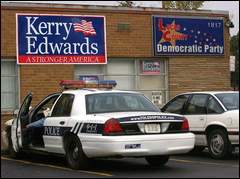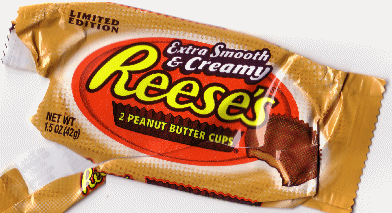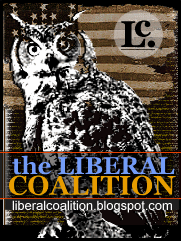Here at Make Me a Commentator!!! we promise the most intense debate analysis ever as we literally go word by word to tell you what the candidates said and what they meant. We are using
the transcript from the New York Times, so let's dive right in.
The first question was to President Kerry and was as follows.
Senator, I want to set the stage for this discussion by asking the question that I think hangs over all of our politics today and is probably on the minds of many people watching this debate tonight. And that is will our children and grandchildren ever live in a world as safe and secure as the world in which we grew up?
The first word in Kerry's response was "
Well" which was frankly a terrible choice. Well doesn't convey a presidential timber, and it reminds one of well, wells, like the one Bart fell in, in that one Simpsons episode with Sting. "Well" can be used on occasion effectively, but in this case I think it didn't convey the sort of presidential material we've come to expect from Senator Kerry.
Senator Kerry improved vastly with his second word which was "
first." First of course calls to mind the idea that Senator Kerry came in "first" in the first debate, and his hopes that he'll come in "first" in November. I don't think Senator Kerry could say "First" enough, really.
But inevitably, Senator Kerry falls prey to the third word syndrome, selecting the tiny word "
of." There's nothing wrong with a workmanlike word like "of" in everyday speech, but I think America expects more out of a Potential President. Compare the humble word "of" to "flamingo" or to "supermodel." Which words get your pulse pulsing? I don't think it's "of." Admittedly it might be hard to work "flamingo" into an answer to that question, but as President Bush often says, being President is about hard choices and hard work and various other hard things.
His fourth word was "
all," completing the phrase "first of all." In this he partially redeems himself for the use of the word "of." As part of a phrase it's far less odious. Still I think we have to ask ourselves; is "first of all" really better than "first" by itself? What if he had created some phrase, conveying the same idea but containing the word "cherry-red?" There's just a sense that more could have been done at this point.
Now Kerry hits one out of the park with his next word, "
Bob." This may not have occurred to you, but there are literally dozens of guys around the United States named "Bob." Each one of them felt for a moment that Senator Kerry was talking directly to them. Perhaps an answer composed entirely of common names might have served the Senator well.
I am going to continue working on this analysis and will post it as soon as I finish, which should be somewhere about 2034.



